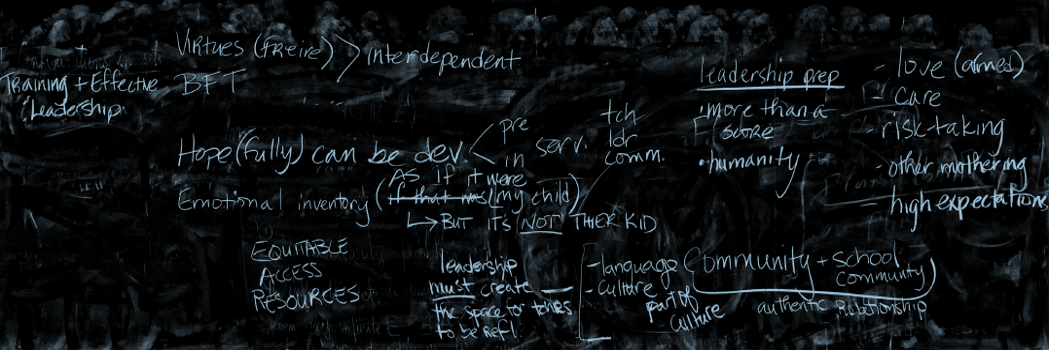This week’s readings made me think about how positionality and identity affect perception. Many of the article’s discussions of hard and soft caring showed how actions such as lowering standards may seem like caring to the teacher, but students perceive the opposite. It made me think about what a delicate balance teaching, and really any meaningful relationship is. It’s a constant swaying between pushing the student forward and pulling back. Further, I wondered about how special education plays into this situation. The best teachers I know have the skills and strategies in their back pocket that allows them to push students. They believe enough in their own abilities as teachers and the abilities of their students that they are truly relentless.
At the end of the day, though, no matter what the teacher intends, if the student feels as though the teacher does not care, then the outcome will be a lack of student learning and commitment.
This truth about perception extends to adults as well. I often feel as though administrators don’t care about me, my opinion or my work. Just as students need teachers that offer critical care, teachers need principals that do the same.
Another theme that emerged for me from these readings is that many of the wonderful schools and parent organizations grew out of a need that was not being met. The Malcolm X quote at the end of the parent video highlights the need to turn our rage into action. We see this in our small moments – students need teachers who will not just feel sorry for them, but will act in ways that will bolster their success, and in our larger activism – teachers and parents need to band together in order to make systemic changes. The idea that change occurs in response to a low point reminds me of the conversation that we had the first day of class, in which we spoke about moments of caring in schools often occurring alongside a traumatic event or time in our lives.
Lastly, I thought a lot about the positive surveillance practices that were described in the Antrop-Gonzalez & De Jesus article. Those practices reminded me a lot of womanist and mothering practices. For me, growing up, my grandmother watched all of her grandchildren incessantly. It was impossible to do anything wrong because she would always know about it. This practice of lovingly hovering with a sharp eye and a strong hand is common in many communities, especially marginalized ones in which the risk of permissiveness is greatest. Many educational leaders, for instance, Ladson-Billings, have written at length about the positive impact of having so many kinfolk around that there was literally nowhere to hide.
These readings also left me with a question about integration. Do you think that some healing practices, such as culturally relevant curriculum and parental involvement, would work as well in an integrated school?


